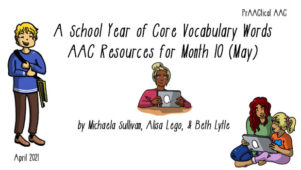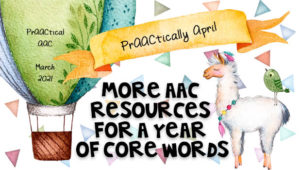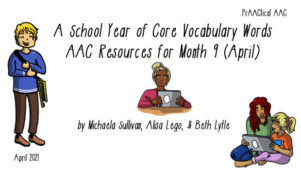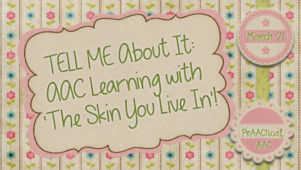5 Things to Avoid in Core Vocabulary Teaching
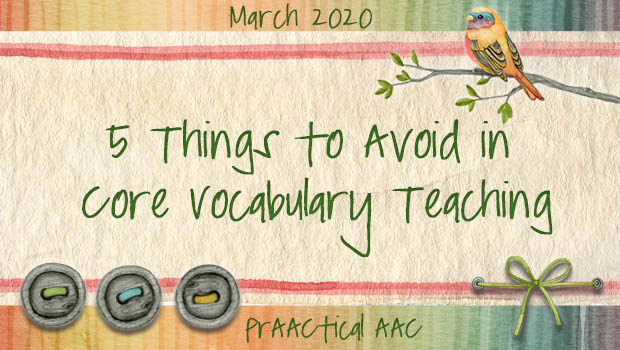
There’s no doubt that core vocabulary plays an important role for the majority of people with AAC needs. When using and teaching them, however, there are some common pitfalls. Here are some thoughts on avoiding them.
- Don’t equate high-frequency words with ‘first words.’ There is some overlap in core vocabulary and an initial lexicon but they are different things. Both are important.
- Don’t assume that just because someone has a significant intellectual disability that core vocabulary is irrelevant or too difficult. Many, many people with complex communication needs who have significant cognitive impairments have been successful in learning to use these words.
- Don’t limit the AAC learner to only core words. If we exclude words that are of great interest or highly motivating, we take the fun out of communication.
- Don’t get stuck with just the root word. Instead, use various forms of the word (e.g., go, goes, going; big, bigger, biggest) in your aided language input. When appropriate, teach the AAC learner to apply morphological endings to core words so that they can communicate in grammatically correct sentences at some point.
- Don’t stop at core words even for those who haven’t mastered them. Consider introducing some more advanced vocabulary and academic or Tier 2 words that will be useful to your AAC learners. Many core vocabulary learners can also gain an understanding of words like choose, decide, predict, right, argue, defend, and oppose.
What tips do you have for teaching core vocabulary? We’d love to hear about them.
Filed under: Featured Posts, PrAACtical Thinking
Tagged With: core vocabulary
This post was written by Carole Zangari

